UC Law SF Students Provide Free Legal Assistance Through Public Interest, Pro Bono Programs
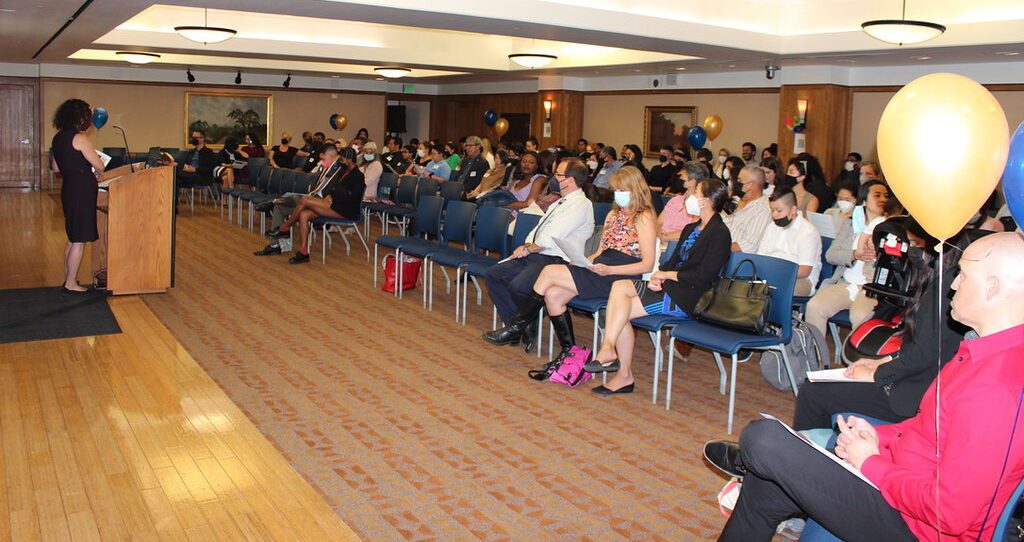
UC Law SF students who did public-interest work during the 2021-’22 academic school year were celebrated at a ceremony in May.
UC Law SF law students worked approximately 55,000 unpaid hours over the last year providing more than $7 million in free legal support to nonprofits, public agencies, and individual clients.
About 540 students offered their time and expertise to help low-income employees fight for unpaid wages, assist workers with filing taxes, and help refugees apply for asylum, among other service work.
“We want to underscore how amazingly proud we are of all the students here at UC Law SF for what they’ve accomplished,” Associate Dean for Experiential Learning Gail Silverstein said. “It’s such important work that they’re doing, but it’s very challenging because they’re often helping people in crisis on top of the normal complexity of legal representation.”
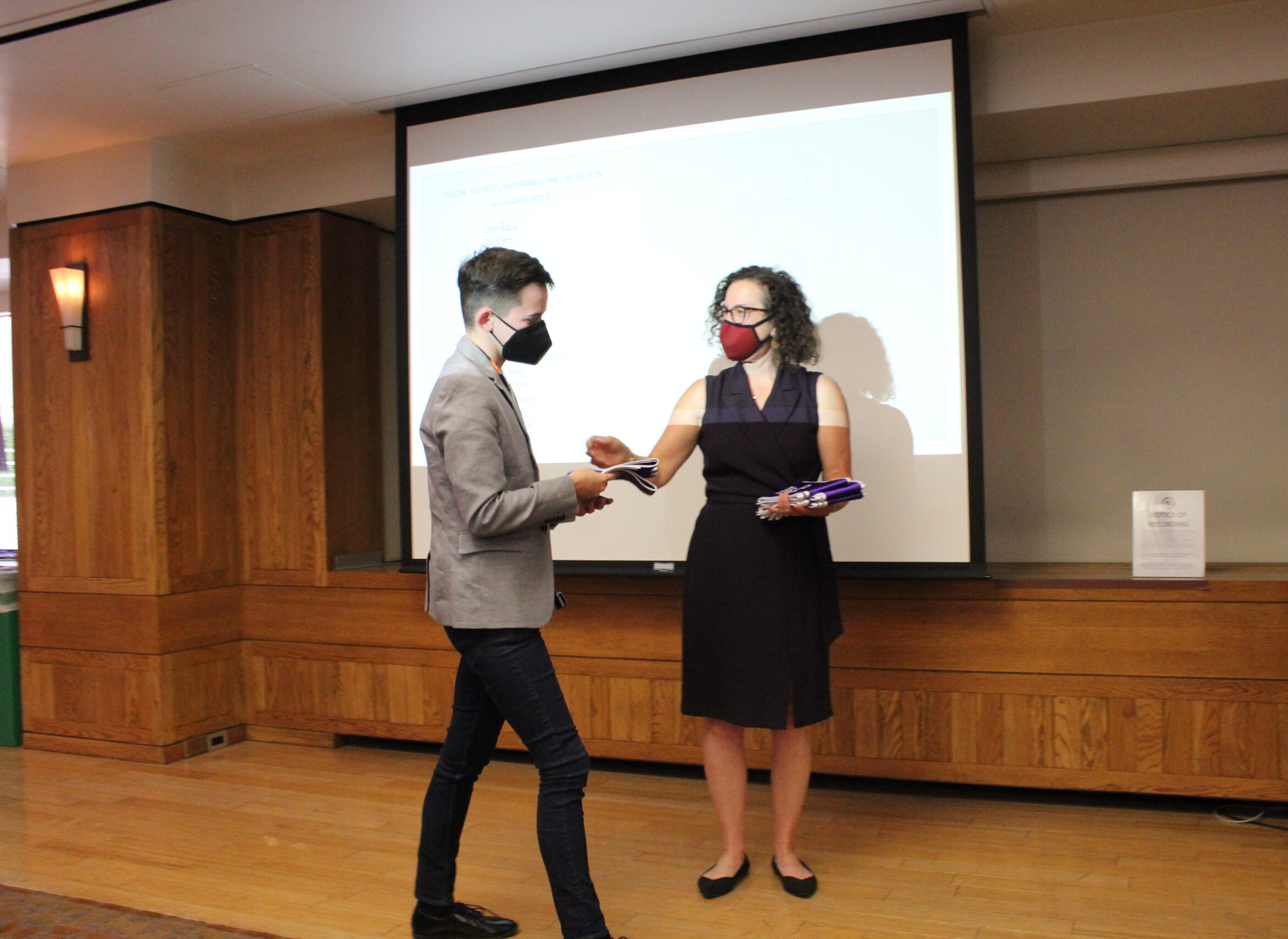
Associate Dean of Experiential Learning Gail Silverstein doled out awards during a Public Interest Celebration in May.
UC Law SF provides multiple avenues for students to practice public-interest work. Students can earn academic credit through in-house clinics, field-placement clinics and externships, which allow them to work directly with clients, nonprofit organizations and government offices. Alternatively, the school’s Pro Bono Program supports student organizations and individual students doing public-interest work in the community.
Through in-house clinics alone over the last year, 116 students logged over 18,00 hours serving more than 240 clients. At a modest billing rate of $130 per hour, that would amount to $2.3 million in free legal services. Another 150 students logged over 30,000 hours in field-placement clinics and externships, providing some $3.9 million in legal assistance. An additional 264 students reported working 7,900 pro bono hours, contributing over $1 million in public-interest legal work.
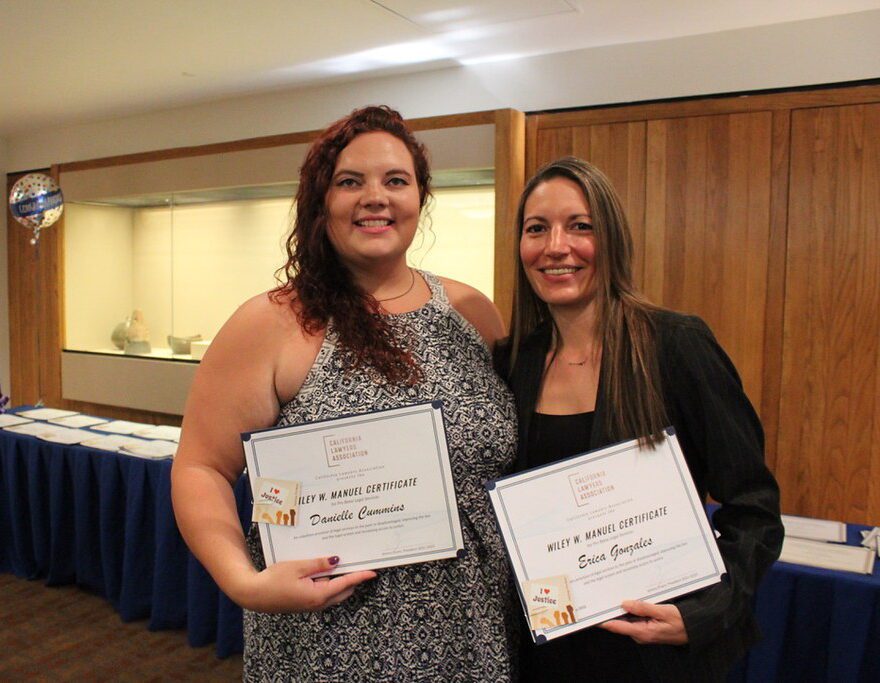
Danielle Cummins ’22 and Erica Gonzales ’23 proudly displayed their awards during a Public Interest Celebration.
“That totals over $7 million in legal services provided by students this year, and that doesn’t count the 35 students who were judicial externs who logged over 16,000 hours,” Silverstein said.
Students who engaged in various types of service work were celebrated at a Public Interest Celebration in late May. Silverstein said the event is meant to honor law students who do “vital work” serving the greater good.
“I think law school really valorizes grades and academic achievement, but the commitment to pro bono or social justice work is so important,” Silverstein said. “It’s the moral fabric of our society to help others in need and seek justice so we really need a separate time to recognize and celebrate students who do that work.”
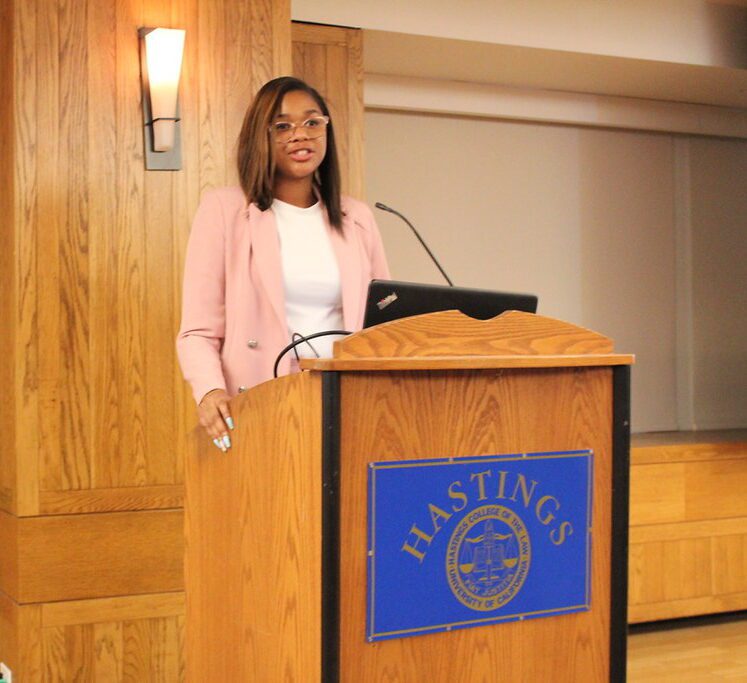
Nikayla Johnson ’22 addressed students during a Public Interest Celebration in May.
One of the students recognized was Nikayla Johnson ’22, who also graduated with a Social Justice Lawyering Concentration, which prepares students for careers in public service. She helped parents facing child custody issues, advocated for prisoners to get reduced sentences, and conducted parole consultations for people serving life in prison, through her work with numerous UC Law SF programs and clinics.
Johnson urged her fellow students to continue helping those on the margins of society, “I stand before you all today to make a call to action. I implore you to do all that you can for our forgotten and left-behind peers.”
For those not pursuing a career in public service, these programs instill values that future lawyers can take with them into the business world, said UC Law SF Professor Alina Ball, “It’s nice to see students with a social justice commitment staking out a place for themselves in corporate and big law firms while doing pro bono work.” Ball founded the Social Enterprise and Economic Empowerment Clinic at UC Law SF, which works with businesses and nonprofits on social and environmental missions.
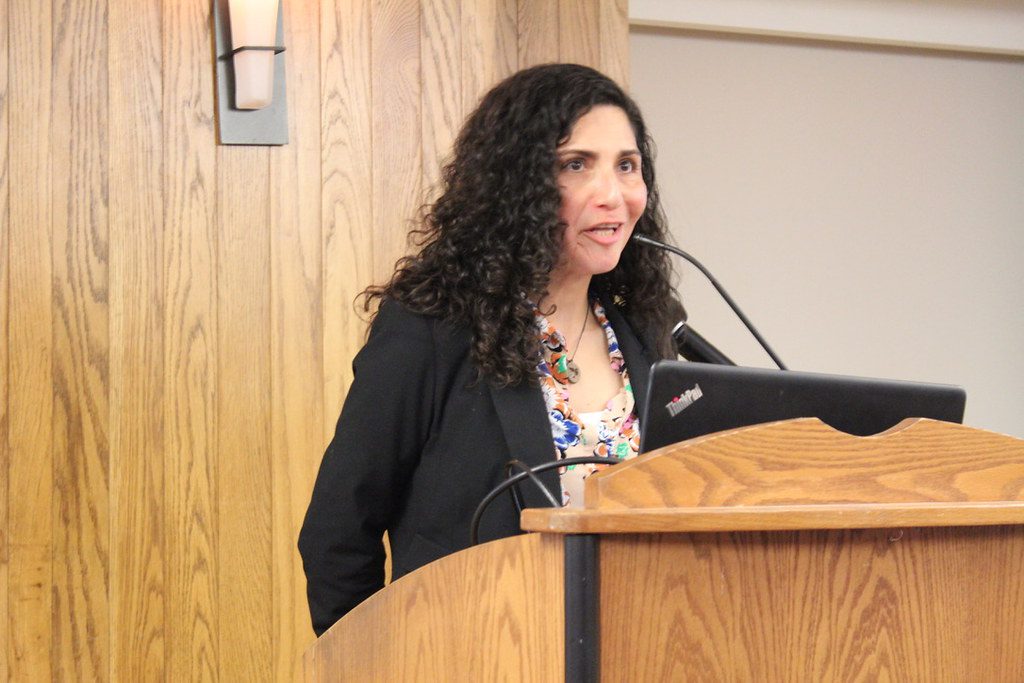
Rosamaria Cavalho ’22 addressed students during a Public Interest Celebration in May.
Rosamaria Cavalho ’22, who won a post-graduate fellowship to work with East Bay Community Law Center, predicted her classmates will build on their public-interest experiences and use their law degrees to make a positive difference, “I am so proud of each and every one of us and cannot wait to see all of the amazing change we facilitate and create in this world now armed with a law school degree.”
Find a full list of honorees from the 2022 Public Interest Celebration here.